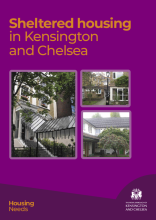Care homes and housing options
Where it is not possible to continue living in your own home even with the support of others, then moving to a care home can offer a comfortable and safe alternative. Some care homes also offer ‘respite’ care, which are short-term placements for people after they have been in hospital, or for carers who need to take a break.
All homes must be registered and regulated by the Care Quality Commission (CQC). The CQC regularly visits and inspects care homes to ensure they are providing appropriate standards of care. They can instruct care homes to improve where necessary. The CQC maintains a directory of all registered homes on their website, where you can find out more about the homes they regulate and view the latest inspection report for them
There are 2 main types of care home:
- residential homes offer a place to live with care and support to suit your needs
- nursing homes offer 24-hour medical care from a qualified nurse as well as other appropriate care and support to meet your needs
Some homes often specialise in areas such as:
- older-aged residents
- people living with dementia
- people living with mental illness
- people living with physical disability
For more information and guidance, visit:
- Find a care home page on the Care Quality Commission (CQC) website
- Finding somewhere to live pages on People First
- Money, benefits and legal pages on People First
Sheltered housing
Sheltered housing consists of self-contained flats within buildings that provide a safe and secure environment for older people. It allows you to have your own home, while benefiting from the reassurance of staff on site during working hours. Most schemes have communal lounge areas and gardens, and some organise activities for residents.
In Kensington and Chelsea sheltered housing is available to rent from the Council and registered social landlords. It is available for people aged 60 years and over (or 55 years and disabled). If you are still working, there may be restrictions about the number of hours you can work to qualify for sheltered housing.
The demand for sheltered housing is high. How long you wait depends on your priority for housing and how flexible you are about which schemes you will consider.
If you are interested in sheltered accommodation and would like to find out how to apply, contact the Housing Opportunities Team, telephone 020 7361 3008.
You can also download a copy of our booklet which provides details of schemes in the borough:
For more information and guidance visit the Supported and sheltered housing pages on People First.
Extra care housing
Extra care housing is a specialist form of housing for older people. Residents live in their own flats but have access to care and support services on-site 24 hours a day if they need it. This means extra care housing can accommodate people with a range of needs, including those who would otherwise live in residential care.
Extra care housing schemes can feature communal spaces for residents, for example activity rooms, a hairdressing salon or restaurant, and can offer properties either for purchase (private) or for rent from the Council or a Housing Association (affordable).
For more information and guidance visit the Extra care housing pages on People First.
Other housing options for older people
Equity release
If you own your own home, equity release could be a way to release money from your home without having to move. This could help to pay for repairs or adaptations to your property, or for care and support costs.
Social housing
For more information and guidance:
- visit the Council strategy for modernising older people's housing
- contact the Housing Opportunities team, telephone 020 7361 3008
- visit the Elderly Accommodation Counsel website for information on helping older people or telephone 0800 377 7070 for its First Stop Advice service
- visit the Age UK website for information and guidance on housing options for older people

